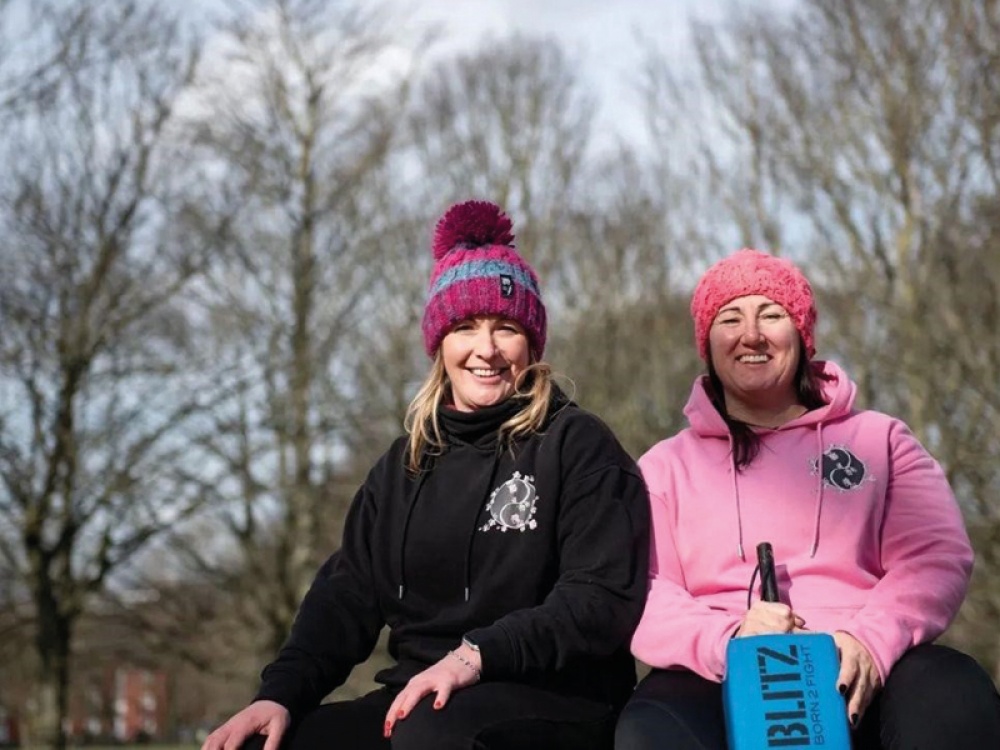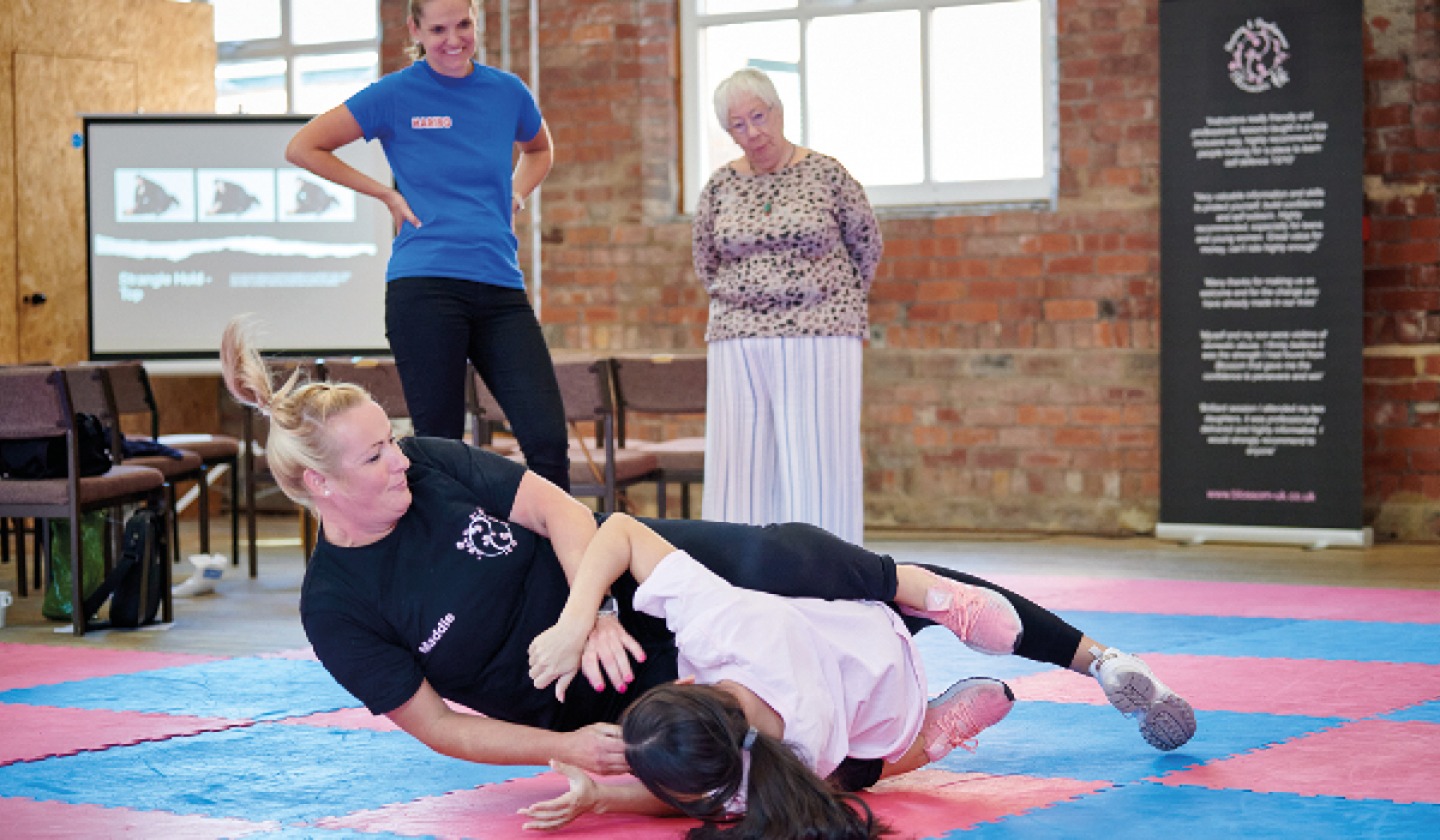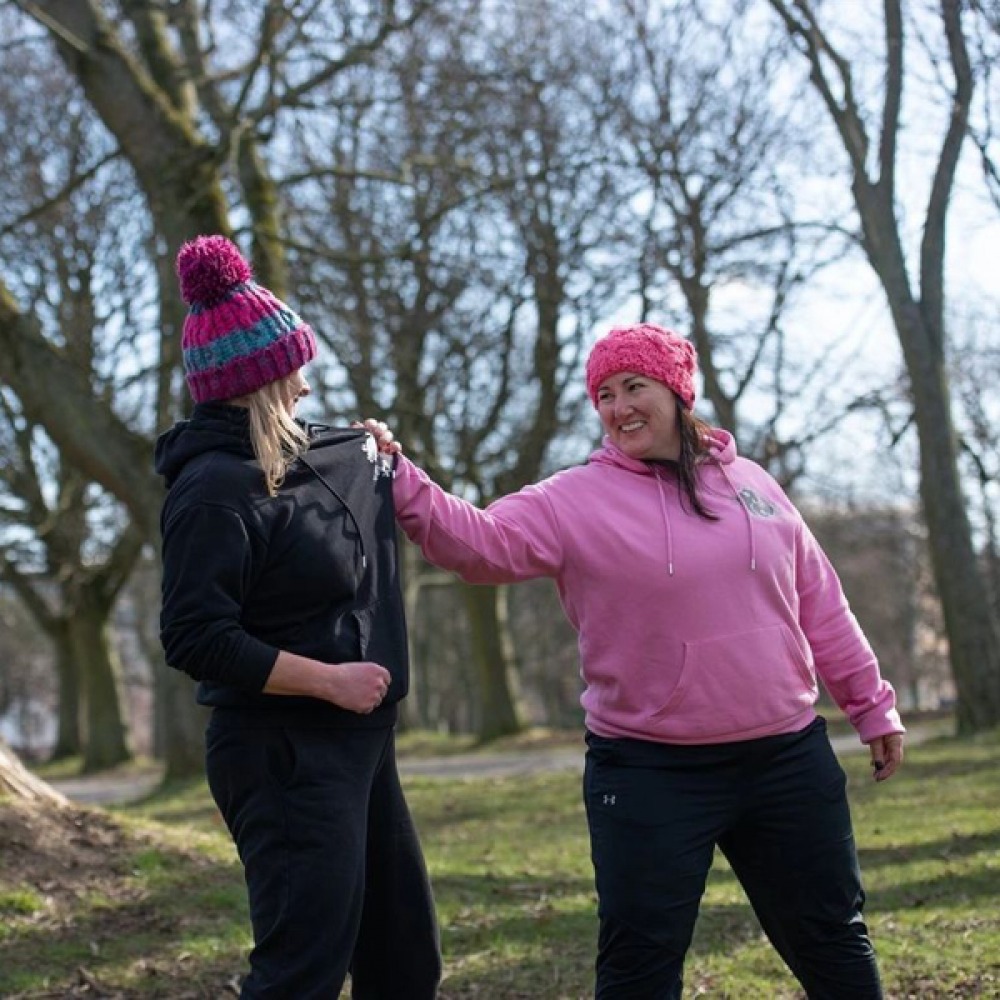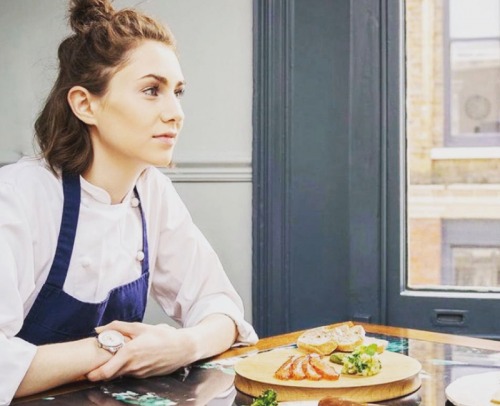The West Yorkshire Company Teaching Women Confidence Through Self-Defence Training

West Yorkshire's Blossom is a community interest company that promotes self-confidence through self-defence training
It’s only after talking to Rachael that I realise quite how frequently the women in my life talk about self-defence; as far back as primary school, we were casually chatting about the tactics our parents had instructed us to use. As women get older, these hypothetical conversations morph into routines; like not going out after dark, texting the number plates on taxis, questionable ways to hold keys, and a constant stream of texts to say you made it home. Ignoring these rules feels reckless, but allow them to dictate your life and your world can become very small.
This is the position that a lot of the women that come to Blossom find themselves in. ‘If you’ve been a victim of domestic violence, or you’ve experienced something in your community that might make you scared to go out, that’s not good for anyone’s mental health,’ Rachael explains. ‘People might come to us very socially isolated, and they’ll spend a day with us and that’ll be the marker for them to say “right, that’s it. I’m gonna go and join my local community group.” That’s the outcome that we want – our training is really to encourage social inclusion.’

Read More: Newcastle United Women's Manager Becky Langley on Her New Role at Smart Works
Blossom began when Rachael started attending evening self-defence classes run by her beautician, Madeleine France. Rachael comes from a military background herself, and completed eight operational tours before leaving the army and settling in Yorkshire, which had been her last posting. Rachael tells me that her childhood was mired by domestic violence and, after a career of training in combat, she now has zero tolerance for conflict. The non-combative emphasis of the classes, and the feeling of community they created, were a revelation. Maddie and Rachael became good friends and, having had more time to reflect on the significance of the classes over lockdown, they created Blossom together.
What Rachael refers to as their ‘flagship’, is their day course. If a day of self-defence training immediately conjures up images of jump-kicks and boxing rings this might sound like a bit much, but at Blossom this couldn’t be further from the truth. ‘We don’t encourage combat of any kind,’ says Rachael. ‘We really focus on the use of the voice as a deterrent, so the first thing that we get people to do is scream “no” and take a defensive stance that visually and verbally gives a very clear indicator that I don’t want any trouble, I’m not a meek, mild victim, do not mess with me. If it does escalate, and somebody gets hands-on, we teach breakaway and disengagement.’
The courses are open to everyone (Rachael tells me that male attendees are often those who feel vulnerable to racial or homophobic violence) but the techniques they teach have been tailored towards women and girls. For example, a Blossom course might cover how to escape if a perpetrator has grabbed your hair or hijab where more generalised training would not. Furthermore, they have specifically been designed to be accessible to anyone. ‘We’ve had 70, 80, 90-year-old women come on our course,’ Rachel says. ‘The techniques that we use transcend age, gender, size, shape, and physical ability because it’s not combat. You could come in your wheelchair and we would teach you movements and techniques that will allow you to keep yourself safe.’

One of the reasons they are able to do this is because their classes have been developed in conjunction with Professor Brendon Stubbs, a physiotherapist specialising in mental health research at King’s College London. Rachael explains that they are guided by a model developed by behavioural psychologist E.R.Guthrie. This model essentially boils down to teaching techniques that require minimum effort but produce maximum effect and certainty of success. ‘The thing that makes it really special,’ she says, ‘is it stays in the [gross] motor skills part of your brain.’
Gross motor skills are movements that involve larger muscle groups and require less precision. This makes a big difference to the effectiveness of what they teach in real-life scenarios. ‘In the same way that if you were to say “could you thread a needle?”, you’d have to really focus on that,’ Rachael explains, ‘if you were then in a very stressful situation, you would lose that skill because you’d be panicked.
‘We teach a lot about psychology and what happens to your body when you go into fight or flight mode,’ she continues. ‘One of the really important things about the use of voice is, if you can scream, it will trigger a cocktail of toxins that pump around your body: adrenaline, noradrenaline and cortisol. Those are the three chemicals that will stop you from fainting. So one big message from us is, if you all you do is use your voice, at least it will power your body to continue to fight.’
The courses blend physical exercises alongside learning about the theory that underpins them. This also means educating participants on the legalities involved in defending themselves. ‘This involves dispelling a lot of myths,’ says Rachael. ‘People think that once they’ve hit you, then you have the right to hit them back. None of that’s true.
‘You have the right to take pre-emptive action if you need to, but your actions have to be necessary and proportionate. One of the first things the police will ask you is: “could you have walked away?” and if the answer is yes, then you’re in a difficult position. So our training is always about escape, and if you can’t escape, minimum interaction with that person.’
In order to help prevent violence against women and girls from happening in the first place, Blossom have also started to run what Rachael calls ‘proactive training’ for men. Unlike their other courses, these workshops are run by their male ambassador, Matt Wilson
‘[Matt’s] actually a strongman in Yorkshire,’ explains Rachael. ‘He’s about six foot four, 23 stone, bearded and full of tattoos. He stands up and says that he was a victim of domestic violence. It changes the tone in the room when people go “wow, this guy’s being really vulnerable”. He’s a big guy, he looks really scary, but he’s being really vulnerable.
‘And then he starts to talk about, “how would you feel if your daughter was walking down a street and a young bunch of guys were wolf-whistling at her?” Suddenly they’re able to allow themselves to be a bit vulnerable and put themselves in that situation. They go “well, I’d hate that”. “Well, have you ever wolf-whistled at someone?” And they go “well I have, yeah”. “And how does that make you feel now?”. “Well I think it’s disgusting.” And they change.’
Read More: The Todmorden Boxing Academy Tackling Women’s Mental and Physical Health
Blossom also run multiple courses targeted specifically towards teen girls, and their ultimate aim is to have their training introduced in schools. For now though, they are focused on delivering their training to as many people as possible. Thanks to funding from Haribo Happiness Funding and the Mayor of West Yorkshire, they have been able to deliver free training every month for the last two years, but Rachael says that they hope to expand this programme by seeking alternative corporate sponsors (and thus free-up money for other organisations).
It’s clear that what Blossom offers participants goes beyond practical skills or an understanding of the law; their sessions sound genuinely therapeutic. One example that Rachael gives me of a typical exercise seems to encapsulate the holistic experience of their courses. ‘First, we ask participants to shout as loud as [they] can,’ says Rachael. ‘That might take four or five attempts for some women,’ she continues, and suggests that outdated notions that ‘girls should be seen and not heard’ could be an explanation.
‘I’ll say, “I promise you this a safe space, there is no judgement, I just want you to let it all out,”’ she explains, ‘and they might end up in tears because that is the first time they’ve done that in as long as they can remember. It’s so uplifting to know that you’ve got that energy.
‘That’s a big thing,’ she reiterates, ‘knowing that you’ve got a voice.’
blossom-uk.co.uk











